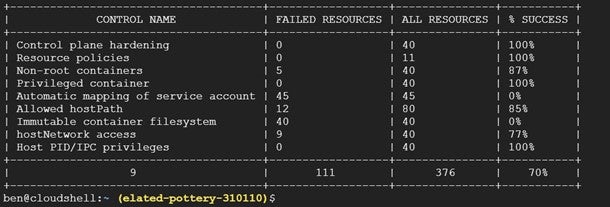Guest post originally published on the ARMO blog by Ben Hirschberg, VP R&D & Co-founder, ARMO
The National Security Agency (NSA) and the Cybersecurity and Infrastructure Security Agency (CISA) have published comprehensive recommendations for strengthening the security of an organization’s Kubernetes system to help companies make their Kubernetes environment more difficult to compromise.
This 52-page cybersecurity technical report offers practical guidance for admins to manage Kubernetes securely, focusing on the common sources for a compromised Kubernetes environment.
To learn more visit kubescape GitHub page
Kubescape is based on OPA engine: https://github.com/open-policy-agent/opa and ARMO’s posture controls.
Kubescape retrieves the Kubernetes objects from the API server and scan them by running a set of regos snippets developed by ARMO.
It establishes how well your Kubernetes configurations meet the best practice recommendations from the NSA and CISA guidance.
The output results are printed in a “console friendly” manner by default, but they can be also retrieved in JSON format for further processing.

Kubescape is running the following tests according to what is defined Kubernetes Hardening Guidance byto NSA and CISA. More tests will be added soon – stay tuned!
- Non-root containers
- Immutable container filesystem
- Building secure container images
- Privileged containers
- hostPID, hostIPC privileges
- hostNetwork access
- allowedHostPaths field
- Protecting pod service account tokens
- Pods in kube-system and kube-public
- Resource policies
- Control plane hardening
- Encrypted secrets
- Anonymous Requests
Kubescape is an open-source project, we welcome your feedback and ideas for improvement. We’re also aiming to collaborate with the Kubernetes community to help make the tests themselves more robust and complete as Kubernetes develops.